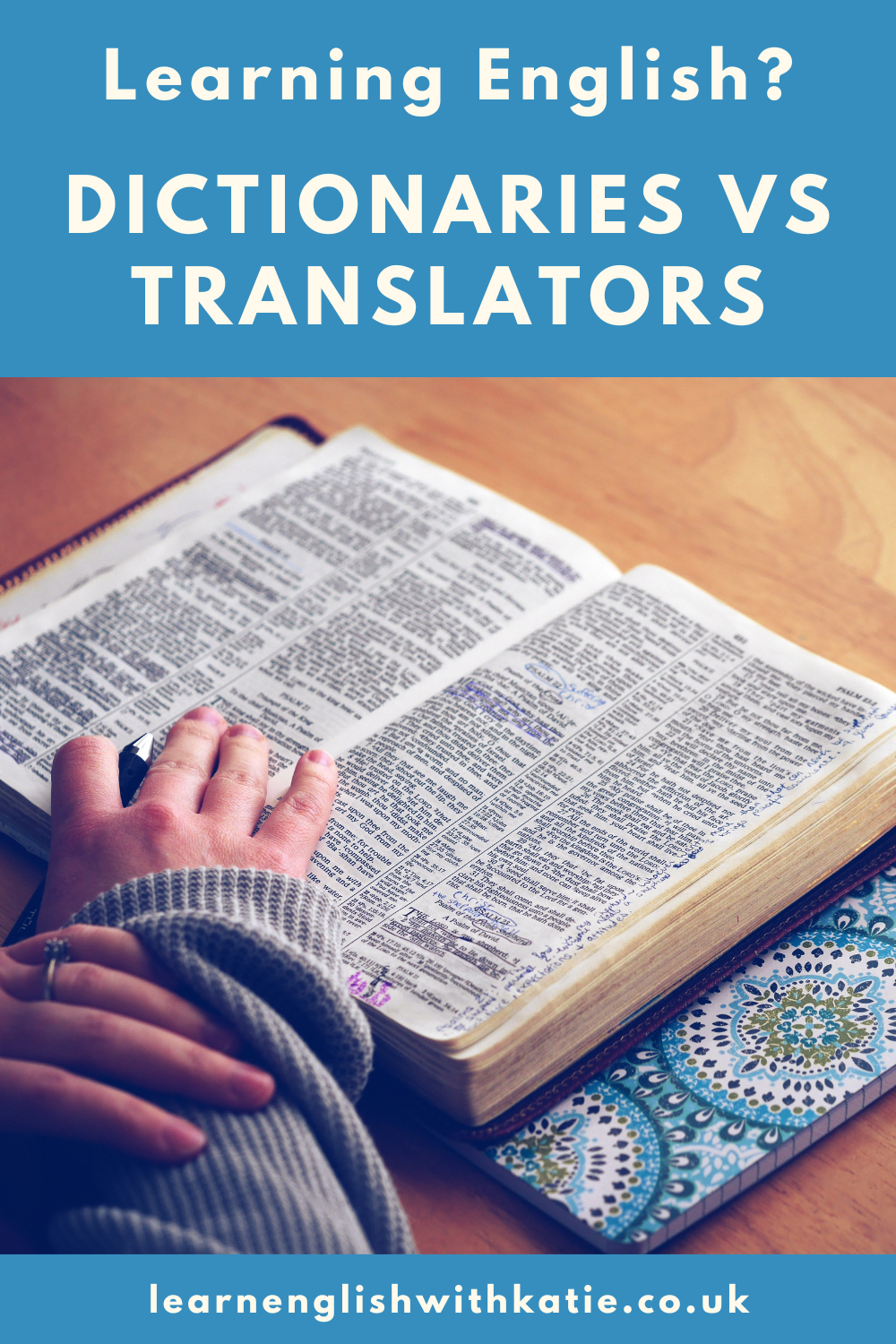|
I recently posted something on my Facebook page about Google Translate and about why I don’t recommend using it. This started an interesting conversation and lots of people asked me what they should use instead. Keep reading to learn more! Actually, my advice is to use a dictionary, not a translator, but first do you know the difference? When I say translator, I mean something which can translate whole sentences or even whole texts, like Google Translate. However, a dictionary is mainly for looking up single words (although they also contain idioms and short phrases). There are English-only dictionaries (sometimes called monolingual or English-English dictionaries) and they explain to you, in English, what a word means. There are also bilingual dictionaries. These are dictionaries which translate single words from your language to English or the other way around. English-English dictionaries My favourite English-only dictionaries are: Longman Dictionary of Contemporary English - ldoceonline.com This one is good for providing example sentences. Cambridge Learner’s Dictionary - dictionary.cambridge.org/dictionary/learner-english You can create a Dictionary Plus account and save lists of your favourite words. This dictionary also comes as an app. Oxford Learner's Dictionary - oxfordlearnersdictionaries.com I like this one for the pictures and extra features, such as information about collocations. Bilingual dictionaries If you want a good bilingual dictionary, it’s more difficult for me to help you because I don’t speak your language! Cambridge, Collins and wordreference.com are good for a lot of languages but not all. Search Google for “best English xxx dictionary” (where xxx is your language) or ask your friends what they use. Why use a dictionary? If your goal is to learn English and improve your vocabulary, it would be better to use a dictionary. Dictionaries are more accurate than translators and they give you more information about words. Also, translators can make you lazy! Dictionaries make the learning process more active and that means you learn and remember more. Why use a translator? Having said that, it depends on your goals and on how you use your chosen tools. If you are in a hurry and you need to understand a text quickly, a translator can be a useful tool. However, you must remember that translators are not always accurate. You should probably only use them to translate from English into your language. If there are any mistakes, you can still understand. But if you try to translate your language into English, how can you know if the results are correct or natural when English isn’t your first language? Alternatives to Google Translate If you have to use a translator, and you want an alternative to Google, try Collins, Reverso or DeepL. Unfortunately, these translators don’t have as many languages as Google. I haven’t tried them all myself so I can’t tell you how good they are but I’ve read that DeepL is supposed to be the most intelligent and accurate. If you would like to know more about how to learn vocabulary and how to stop forgetting new words, you'll find my latest e-book helpful. Click the button below to get your copy.
0 Comments
Your comment will be posted after it is approved.
Leave a Reply. |
About the blogFollow the blog for mini lessons and tips on how to improve your English. Categories
All
Archives
July 2024
|

 RSS Feed
RSS Feed
